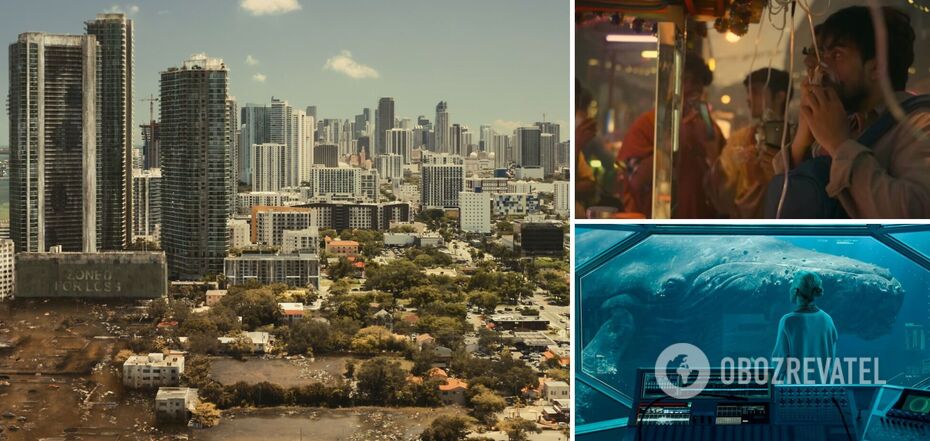Life
Planet B doesn't exist: the show reveals the bitter truth about the catastrophe that has already begun on Earth
An ecological catastrophe on Earth is not just possible somewhere in the future, it has already begun, and every day that humanity ignores this fact leads to worse and worse consequences in the future. The sci-fi series "Extrapolations" was released on Apple TV, scolded for its weak stories and formulaic plot twists, but praised for its honesty about the future of humans on Earth and support for the slogan that there is no planet "B" for humanity and the only chance of survival is to save the Earth.
The action of the series begins in the year 2037, when the planet has warmed by just under 2 degrees, and environmental problems have reached the scale of an imminent catastrophe. As Inverse notes, this fits with the reality projected by the Intergovernmental Panel on Climate Change report. According to them, in the 2030s mankind will be on the verge of catastrophic climate change if they do not take action.
Journalists note that unlike traditional Hollywood disaster movies, which show humanity in a world where disaster has already occurred or paint unrealistic scenarios of the not-too-distant future, the Extrapolations series tries to be honest with viewers about what awaits them if each individual person does not begin to save the planet's climate.
The series, however, has a problem because it expects viewers not to have to explain what geoengineering (a set of measures aimed at actively changing the Earth's climate) is and does not over-explain other complicated climate terminology, sometimes leaving unprepared viewers confused.
Nevertheless, critics praise the film because it tells the tragedy not only of the planet, but also of the people living on it, allowing even unprepared viewers to empathize with the characters and thus try on the consequences of the climate disaster on Earth.
The series offers viewers a terrifying glimpse into the near future if real people on the real Earth do not begin to take action to curb climate change.
Each successive episode takes a leap into an even sadder future, so near the end of the series, viewers watch what happens to the Earth in 2068, when the planet warms up 2.44 degrees and the air in cities becomes unbreathable due to pollution from fossil fuel emissions.
And, as the experts point out, this is not the screenwriters' fantasy, but the reality that awaits the people of the future if we don't act now.
"Extrapolations" is also praised for its scientific accuracy and avoidance of alarmist sentiments, as the authors try to show the objective and probably boring side of climate disaster, rather than decorating it with spectacular earthquakes, volcanic eruptions or giant tsunamis. The series does not entertain the viewer so much as it tells the dramatic story of the climate crisis.
The series also makes it clear that humanity cannot rely solely on technology to solve the problems of climate change. People's inability to quickly reduce their consumption of fossil fuels leads to rapid carbon emissions and further global warming, but there is no particular rush by world leaders to solve this problem.
Earlier OBOZREVATEL also told that as a result of global warming, according to the forecast of scientists, four countries may be under water.
In addition, global warming will lead to the extinction of 27% of the creatures that now exist on Earth. This could happen by the end of this century.
Subscribe to OBOZREVATEL channels in Telegram and Viber to keep up with the latest events.






























